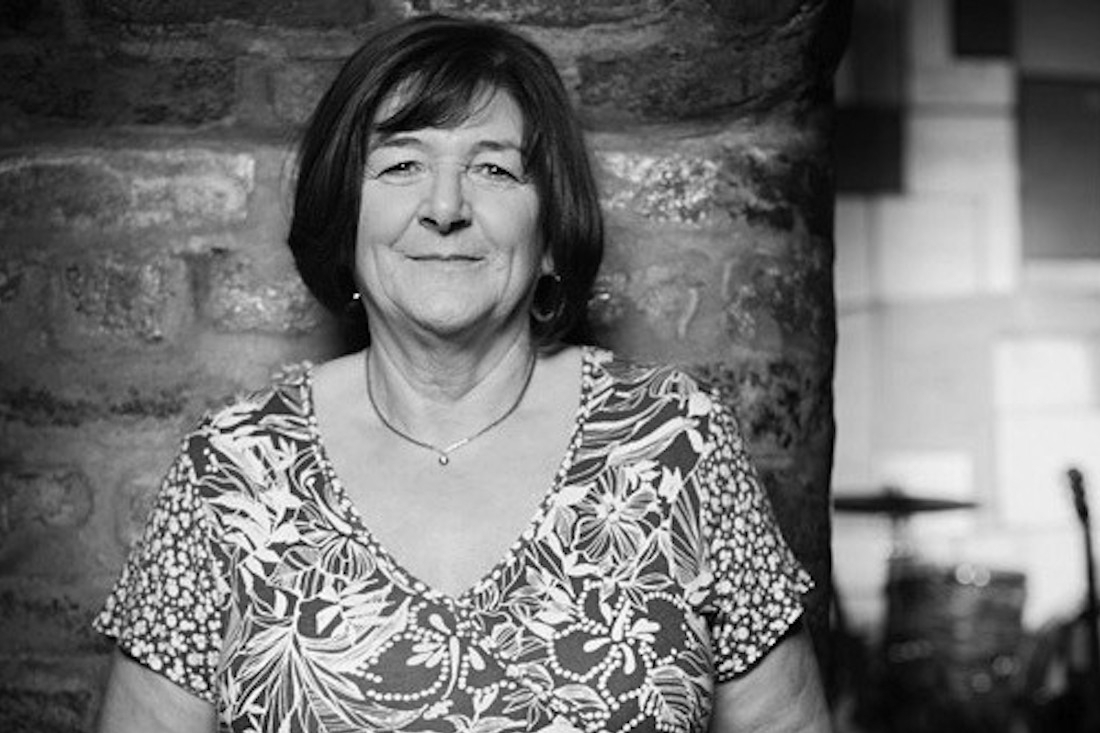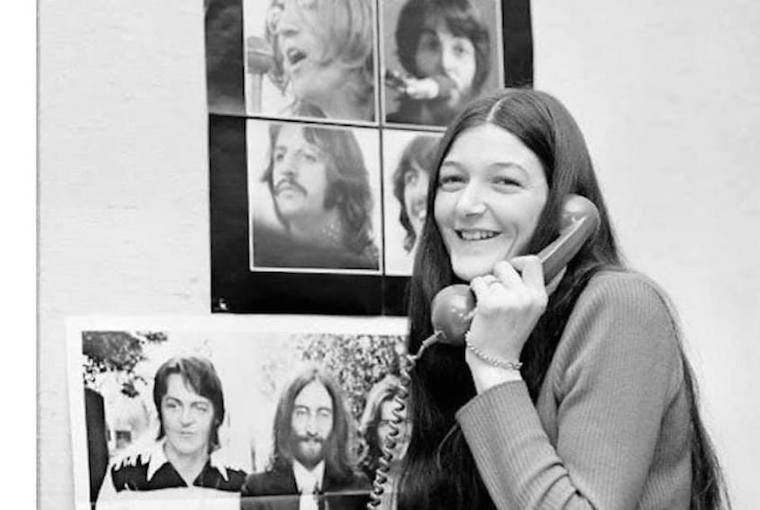

“Once, a girl had sent them four sticks of gum and Freda had each Beatle chew one and send the sticks back to the girl.” – Ryan White
In the 1960s, a tiny rock band in Liverpool borrowed its name from an insect, misspelt it, and rose to fame in an unprecedented way. Nicknamed as the ‘fab four’, the band, which was once mocked for its bizarre hair statements, went on to reign the Billboard charts. Its songs became iconic and immortal. Some songs became subjects of controversy: Lucy in the Sky with Diamonds was penned under the influence of LSD (introduced to the band by John Lennon’s dentist) and BBC banned I am the Walrus because it had the word ‘knickers’ in it,
Most of us know almost everything there is to know about The Beatles, but perhaps not from the point-of-view of their personal secretary, Freda Kelly. Over period of ten years, Kelly became a close, loyal friend of the band. Almost sixty years down the line, she is a living repository of the band’s personal history—stories that never made it to the tabloids, television sets or gossip columns. Stories which even her family (including her own daughter) wasn’t aware of. Secrets so priceless, that only an insider like Freda would know.
Freda who became a grandmother in 2013, wanted her grandson to know just how cool she was during her youth. She finally agreed to be filmed by documentary filmmaker, Ryan White and made Good Ol’ Freda. Through the documentary, Kelly shares precious anecdotes with the world, which allows us to see the famous ‘60s rock band from a new lens.
Freda was 16-years-old when she left school to become a secretary at a local company in Liverpool. The ‘unglamorous job’ (as she labels it in the documentary), entailed typing innumerable contracts and letters. This was 1961. It was the same year that she visited The Cavern Club for the first time and watched The Beatles perform for the first time.
At the back of the dimly lit room, she recalls, on a small wooden stage, an unassuming quartet dressed in leather gear performed before her. “I had never experienced anything like that,” shares Freda in the film. “The Beatles were walking about and dancing on stage and larking about at the audience. And on top of everything else, there was the music. It was unlike anything I had ever heard. I was hooked!” Freda, of course, was not alone. Through rapid word-of-mouth, more people began attending the gigs, and the band slowly gained a cult status.
With the hype, came the girls. “There were about two rows in the front, and [the girls] would leave their rollers [in their hair] before the lads would come on stage. And then they would take their rollers out and doll themselves up and everything,” Kelly titters in the documentary, reminiscing fondly. After the band’s performance, the quartet would disappear within the green room, and Freda followed behind them. It was here that she began having conversations with the band members and got to know them personally. During one of these meetings, Kelly met the successful Brian Epstein, the band’s manager and owner of the illustrious NEMS, a music store in Liverpool.
When Epstein met Kelly, he offered her the once-in-a-lifetime job opportunity to become the band’s personal secretary—a responsibility she would go on to honour for 11 years. She was just 17 then. Good Ol’ Freda opened to rave reviews at the SXSW (South by Southwest) festival in 2013, and was also screened at the prestigious Hot Docs documentary festival and San Francisco International Film Festival. We interviewed filmmaker, Ryan White about Freda and his film.

Freda decided to speak about The Beatles for the first time, and you were the first to film her. How did the two of you meet and what were the series of conversations you had with her which convinced her to finally speak on camera?
I have known Freda since I was young, but I did not know she was The Beatles’ secretary. She is really private and doesn’t like people to know about her past. My uncle, Billy Kinsley of the Merseybeats (a contemporary band of The Beatles) is a friend of Freda’s, so I knew her from family weddings and holidays while growing up. However, I wasn’t aware of her ‘previous life’ until she and producer, Kathy McCabe brought the idea of the film to me two years ago. I think she would only do it with someone whom she trusted and knew already, so I was at the right place at the right time. The major responsibility I felt while making this film was to create something that was faithful to who Freda is–something that she would be proud of when she watched it in a theatre with her family.
What was your experience while filming Freda? Did she willingly open up or did she need some persuading?
Once Freda got going, she really got into a rhythm. She began unearthing all of these memories which she hadn’t thought about in 40 or 50 years. My favourite part was getting to be a part of her remembering process. After our premiere at SXSW, Freda’s daughter came up to me and said, “Ninety-five percent of that movie was completely new to me”. Freda hadn’t taken the time to tell these stories to even the people closest to her in her life. So, just being able to go places with her that she hadn’t been since the ‘60s and see the memories move through her was really special.
What were some of the personal anecdotes revealed by her that stuck with you?
I think Freda humanizes The Beatles in a way that people don’t often think about anymore. She knew them when they were just boys, before they became ‘The Beatles’. So, I think, many of her stories are very endearing and highlight what each of their personalities were like before they faced worldwide fame. But more than that, the most awe-inspiring stories involved the great lengths she went to keep the fans happy through personal attention. For example, she would send them strands of hair of each of The Beatles member. Once, a girl had sent them four sticks of gum and Freda had each Beatle chew one and send the sticks back to the girl—it’s just a snapshot in time to a culture in pop music that doesn’t exist anymore, I think.
Your documentary also features the original The Beatles music. It’s a rare license to procure. How did that come about?
I’ll just say this: it is a testament to Freda and the reverence that The Beatles circles have for her that helped us pull that off. But we are grateful to everyone who played a part in making this film; it took a lot of people to get on board and to make this happen. It really elevates the quality of the film, to get to use real The Beatles music to tell Freda’s story.
Text Radhika Iyengar